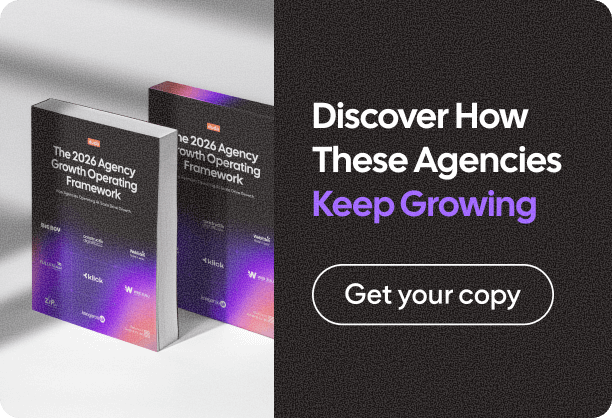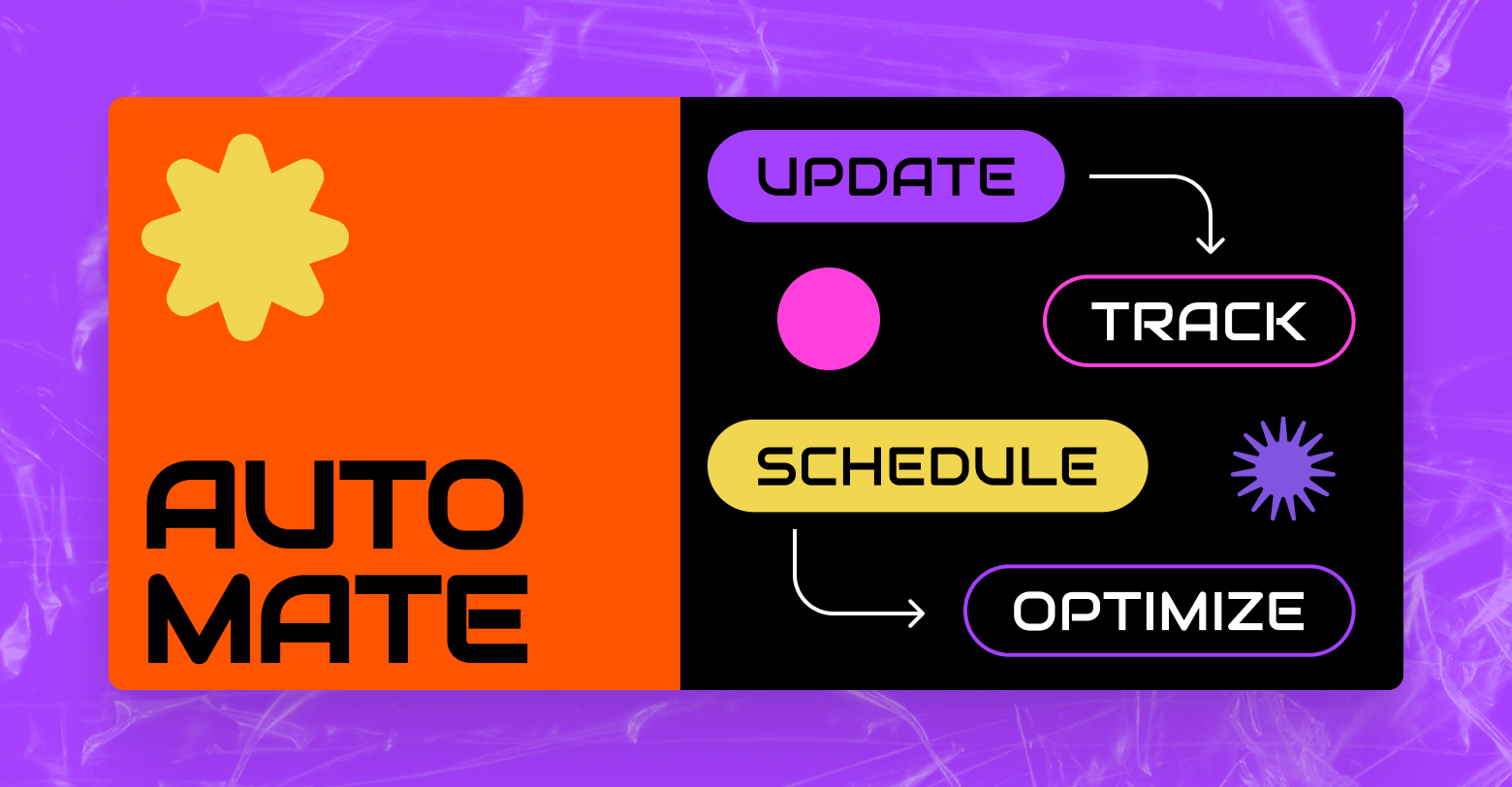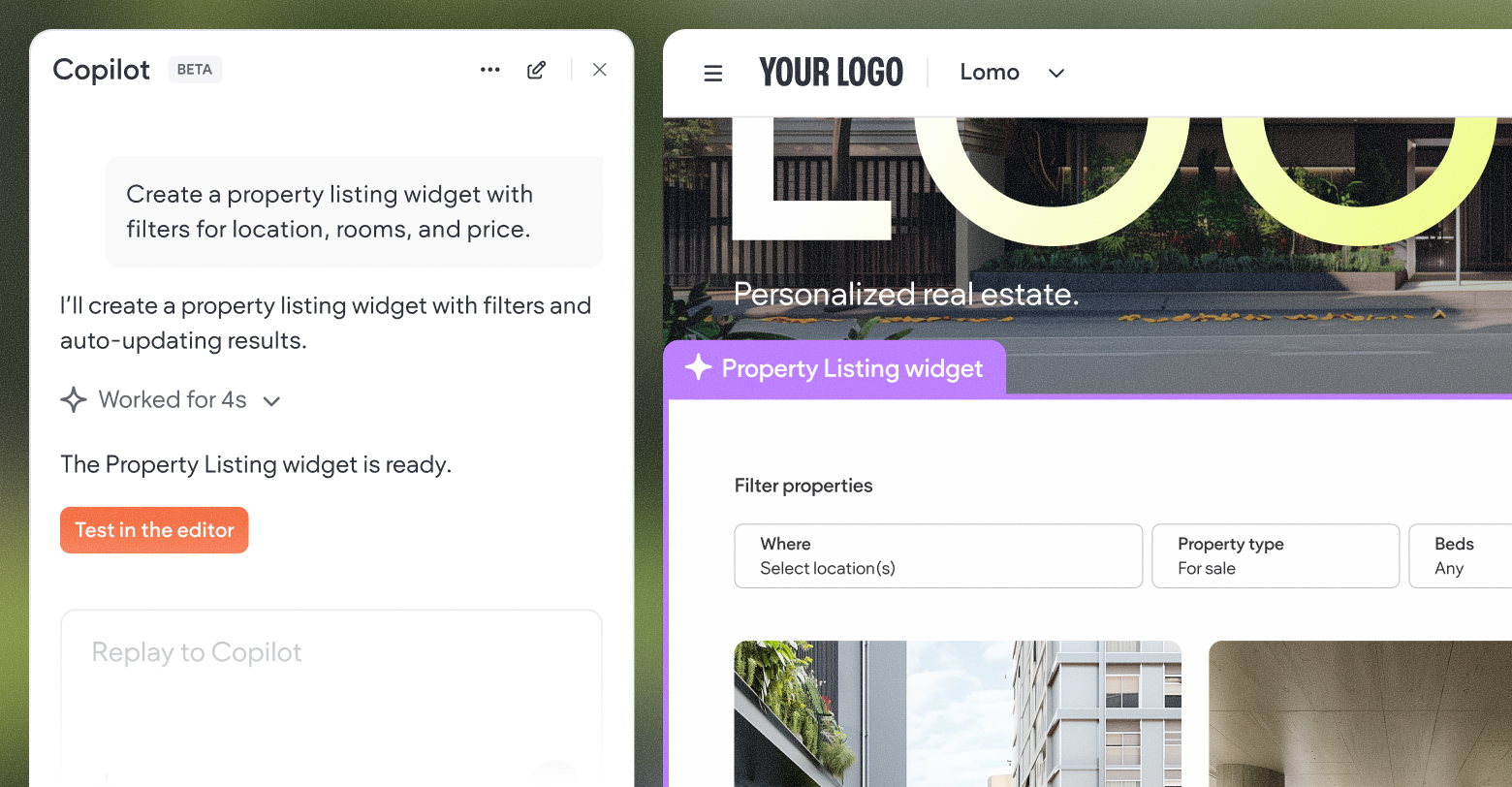We work with a lot of
agencies, more than 26,000 as of this writing. We also talk a lot about “increasing operational efficiency” and “accelerating growth.” These phrases, and phrases like them, are all over our website and our ads. We use them for good reason, though! We see countless agencies who truly are operating more efficiently in unique ways, and are growing faster because of it.
If you caught DudaCon earlier this year, you may have seen one of these strategies in action. Ruan Marinho of
Develomark is a bona fide savant when it comes to this, and he put that knowledge on full display during his “AI and Automation” session. He shared
really clever ways to utilize tools like Zapier and ChatGPT to do everything from analyze form submissions to strategize content. If you haven’t watched it yet, I’d recommend you do.
For so many agencies, that level of automation can seem, frankly, a bit overwhelming. Complex routines that chain together multiple tools are not the right place to start if you’re just dipping your toes into the exciting world of automation. Thankfully, there are a lot of much simpler ways to free up employee hours that even large agencies could benefit from.
Quickly connect client domains
Unless your client has approached you for their first ever website, odds are they already own a domain that they’d like to use. Transferring an existing domain to Duda introduces quite a bit of complexity, especially on the SEO-side of things, but for many agencies one of the biggest challenges is just connecting that domain in the first place.
Clients may not remember who their registrar is, or may be unfamiliar with terms like “CNAME.” There are ways around this, like whois searches, that agencies can employ to guide their clients through the connection process, but doing so takes time.
Thankfully, it doesn’t have to be that way. Duda offers a seamless way for clients to automatically
connect their domains without having to even know who their registrar is. All they need to do is enter their URL, like “duda.co,” then log into their account.
Embedded chatbots
If your agency provides client access to the editor, then you’ve probably noticed how difficult supporting that experience can be. Clients may struggle to navigate the editing experience, and may be drowning your inbox as a result with short, simple questions.
Chatbots are a great way to field these simple questions, while simultaneously providing a better experience for clients. Agencies can integrate custom HTML into the editor to embed a persistent chatbot for clients. Depending on the software you choose, you can leverage AI or decision trees to answer the most common questions, saving your team even more time.
Install apps in bulk
Digital compliance is becoming increasingly important for businesses of all sizes. Accessibility, privacy—these are difficult things to implement without specialized legal expertise. Thankfully, third-party experts have built apps on Duda that provide these exact services. Platforms like
Termly,
Termaggedon, and
AudioEye make compliance easy, and Duda makes providing that compliance to clients even easier.
Take
Olive Street Design, for example. They worked with their account manager to deploy AudioEye to all of their clients simultaneously and in-bulk. This is a very easy way to increase product value, boost revenue, and ensure compliance. After all, offering accessibility compliance by default is a great way to shield your agency from any potential liability.
Stay on top of site comments with webhooks
Let’s explore something slightly more advanced;
webhooks. If you’ve been working with the web for a while, you’ve likely encountered the term “API” before. APIs provide a structured way for applications to communicate with one another. Our own API, for instance, empowers agencies to create websites, update templates, add sections, and more all programmatically by sending some code, often referred to as a request, over the internet to a specific web address.
Webhooks are the opposite of this. Instead of you, or your application, communicating with Duda, a webhook is Duda communicating with you. Agencies can leverage this power to receive notifications related to site and account activity. This is a great way to stay on top of client activity within your websites.
You can combine Duda’s powerful site comment webhooks with applications like Slack or WhatsApp to receive instant notifications whenever a new comment is posted.
Other webhooks include when a site is published, when a purchase is made, when a domain is purchased, and more.
Trigger zaps with webhooks
Notifications are great, but to be honest emails can do that too. Where webhooks really shine is when you combine them with other routines, like Zaps. Want to send your clients an email every time their site is republished? Webhooks and Zapier can do that. What about custom routines based around eCommerce purchases? Webhooks and Zapier can do that too.
Combining these two tools is a great way for agencies who aren’t comfortable fiddling with Duda’s API to create powerful, complex business automations. Here at Duda, we’ve combined Webhooks with Zapier to notify employees via Slack whenever a new blog article is published.
Imagine, for instance, a client who is selling products online for in-store pickup. You can combine Duda’s Webhooks with a smart lightbulb via Zapier to create an in-store notification for the staff. This’ll ensure they don’t miss an upcoming order pickup, and is exceptionally easy to implement.
Dynamic pages for local SEO
Local SEO is one of the best ways for small businesses to attract new customers—but what if they have multiple locations? Creating content for various cities, counties, or neighborhoods can be excessively time consuming, especially when all of that content is bound to be fairly similar.
Dynamic pages, one of my personal favorite features, makes this task extremely easy. All you need to do is create a single “template”-style page, perhaps one that represents a location, then connect that page to a collection database. This collection may contain location specific information like an image of the storefront, address, and phone number. Dynamic pages will combine that database with your template to create dozens of website pages automatically.
How are you automating your workflow?
Some of the most successful agencies building on Duda use these techniques to grow their agency, but they’re all just the tip of the iceberg. Advanced automations, especially those that leverage Duda’s REST API, can eliminate repetitive tasks entirely. How is your agency using automation? Have you dabbled yet? Let us know in our
Facebook Community!








